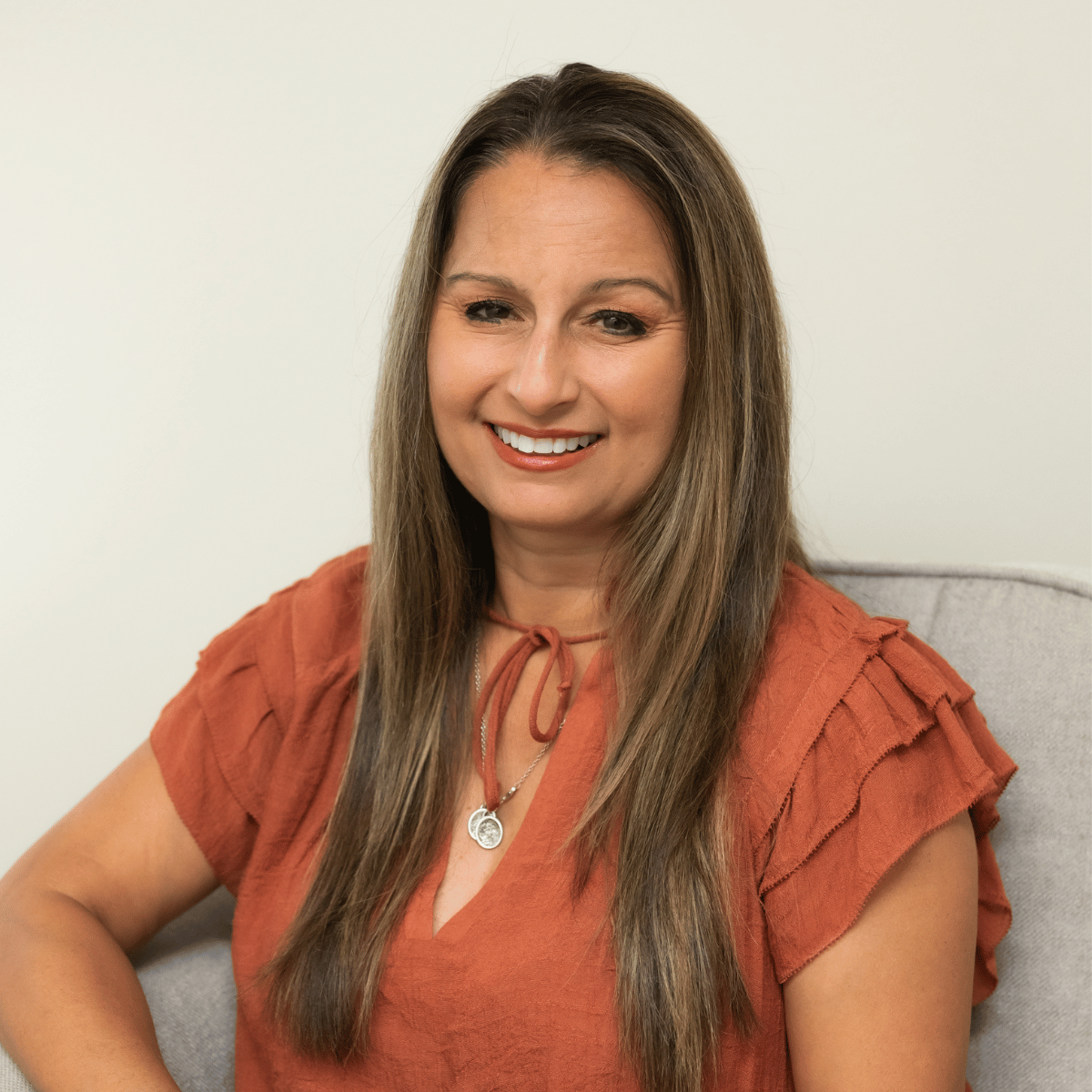Medication for Anxiety: What It Actually Is (And Isn’t)
Let’s play a little word association. I say, “anxiety medication,” and you think… 🧠 “Will it knock me out?”🧠 “Will I get addicted?”🧠 “Will I turn...
4 min read
 Monique Cohen, APRN, PMHNP-BC
:
Aug 19, 2025 1:14:03 PM
Monique Cohen, APRN, PMHNP-BC
:
Aug 19, 2025 1:14:03 PM

Let's talk about life transitions. Those big (and sometimes sneaky) moments that flip everything upside down:
New jobs. New babies. Graduations. Retirement. Divorce. Moving. Becoming a parent. Becoming an empty nester. Going back to school. Leaving a relationship. Starting one. Turning 30. Turning 40. Turning 70.
We celebrate these moments on the outside: cake, cards, maybe a Facebook post, but no one tells you how deeply they can rock your mental health.
If you're feeling overwhelmed, anxious, depressed, numb, or not like yourself during a life change, I want to tell you two things right away:
Let's unpack it.
There's this idea that life changes should feel exciting. That growth is glamorous. That if you chose something like marriage, a new baby, a career move, you should be nothing but grateful.
But real talk?
Transitions are stressful, even when they're chosen. Even when they're celebrated. Even when everyone around you says, "Aren't you just so happy right now?!"
Here's why:
And sometimes, that stress shows up as anxiety, depression, brain fog, irritability, or just a low-key sense that something's off.
You might notice:
And if the change was unwanted? Loss, illness, divorce, retirement, empty nesting, aging? That emotional heaviness can feel even more complicated.
Sometimes talk therapy, journaling, long walks, or leaning on loved ones is enough.
And sometimes it's not.
Sometimes your body and brain need a little more support to get through a transition without completely unraveling.
Medication can help:
This isn't about erasing emotions or bypassing growth. It's about giving your brain the support it needs while your life is shifting under your feet.
Let's look at a few life chapters where people often need a little (or a lot of) mental health support, and where medication may be part of the answer.
You're suddenly expected to know who you are, what you want to do forever, and how to “adult” while balancing friendships, finances, and identity.
Medication for anxiety or depression during this time is common and can be life changing.
You thought love would make everything easier, and then BAM, shared dishes, differing values, and maybe the realization that compromise is harder than it looked in romantic comedies.
Sometimes medication helps ease irritability, anxiety, or stress during relational adjustment. Therapy helps, too. (And so do separate laundry baskets.)
From pregnancy to postpartum to parenting toddlers, teens, and adult children...this season is a lot.
Postpartum depression, anxiety, rage, and OCD are real. So is the burnout of parenting in later stages. You're allowed to ask for medication support at any point in this journey.
Whether you initiated it or not, this transition can leave you grieving, questioning yourself, or feeling like the ground has dropped out beneath you.
Medication can help stabilize you emotionally while you rebuild.
You're waking up asking, "Is this it?" Or maybe everything you thought you wanted no longer fits.
This phase is ripe for depression, anxiety, and existential crisis. And guess what? You don't have to white-knuckle your way through it.
Hormones are shifting. Energy is inconsistent. Your body feels unfamiliar. You might feel invisible or unsure about what's next.
Mood changes during perimenopause and menopause are not imaginary. And medications, including antidepressants or mood stabilizers, can help.
It sounds relaxing in theory. But losing roles, routines, and a sense of purpose can trigger major emotional shifts.
Medication may help ease the anxiety, restlessness, or depression that sometimes pops up in this quieter, slower chapter of life.
Depending on your symptoms, you and your provider may explore:
Used for depression and anxiety. Often well-tolerated.
Examples: Lexapro, Zoloft, Prozac
Work on both serotonin and norepinephrine, good for energy, focus, and mood.
Examples: Cymbalta, Effexor
Such as Wellbutrin, often used when fatigue, low motivation, or brain fog are big players.
Trazodone, Hydroxyzine, or melatonin-based options can support sleep and calm while longer-term meds kick in.
Sometimes life transitions also unearth previously undiagnosed conditions. If your mood is swinging or your attention is fried, your provider might explore these options too.
That question is soaked in shame, and we're not here for that.
You've been handling a lot. Probably more than most people even realize.
Let me be very clear:
We weren't built to navigate every transition with a brave face and a green smoothie. Sometimes your brain needs backup. Medication is one form of backup.
Then start with a conversation. Talk to a therapist, a Psychiatric Nurse Practitioner, or your primary care provider.
You don't have to commit to anything. You don’t even have to start meds right away. But you deserve the information to make an informed, empowered choice.
Try it. See how you feel. And if it's not the right fit? You can try something else. This isn't a lifetime contract. It's a partnership, with your provider, and with yourself.
You don't need to "hit bottom" to ask for help.
You don't need to be sobbing in your car or curled up on the bathroom floor (though if you are, I see you).
You can get support before things fall apart. That's actually the ideal.
Medication isn't just for crisis. It's for clarity, calm, and catching your breath when everything around you is changing.
Life transitions are hard. Full stop.
Even the ones you chose. Even the ones that look beautiful on Instagram.
So, if your brain feels scrambled and your heart feels heavy, please know this:
You are allowed to ask for help.
You are allowed to take medication.
You are allowed to prioritize your mental health in the middle of change.
No shame. No guilt. No gold stars for doing it the hardest way possible.
You deserve stability while you're growing.
You deserve peace while you're letting go.
And you deserve support while you're becoming whoever you’re becoming next.
And if that support comes in the form of therapy, meds, naps, boundary-setting, or all of the above? Then so be it.


Let’s play a little word association. I say, “anxiety medication,” and you think… 🧠 “Will it knock me out?”🧠 “Will I get addicted?”🧠 “Will I turn...

Let's start with this:If school feels like a daily battle, you're not lazy, broken, or "just not trying hard enough".

Let’s say your brain is like a radio. For most people, stations change freely—Top 40, jazz, a podcast, some static. But if you’re living with OCD,...